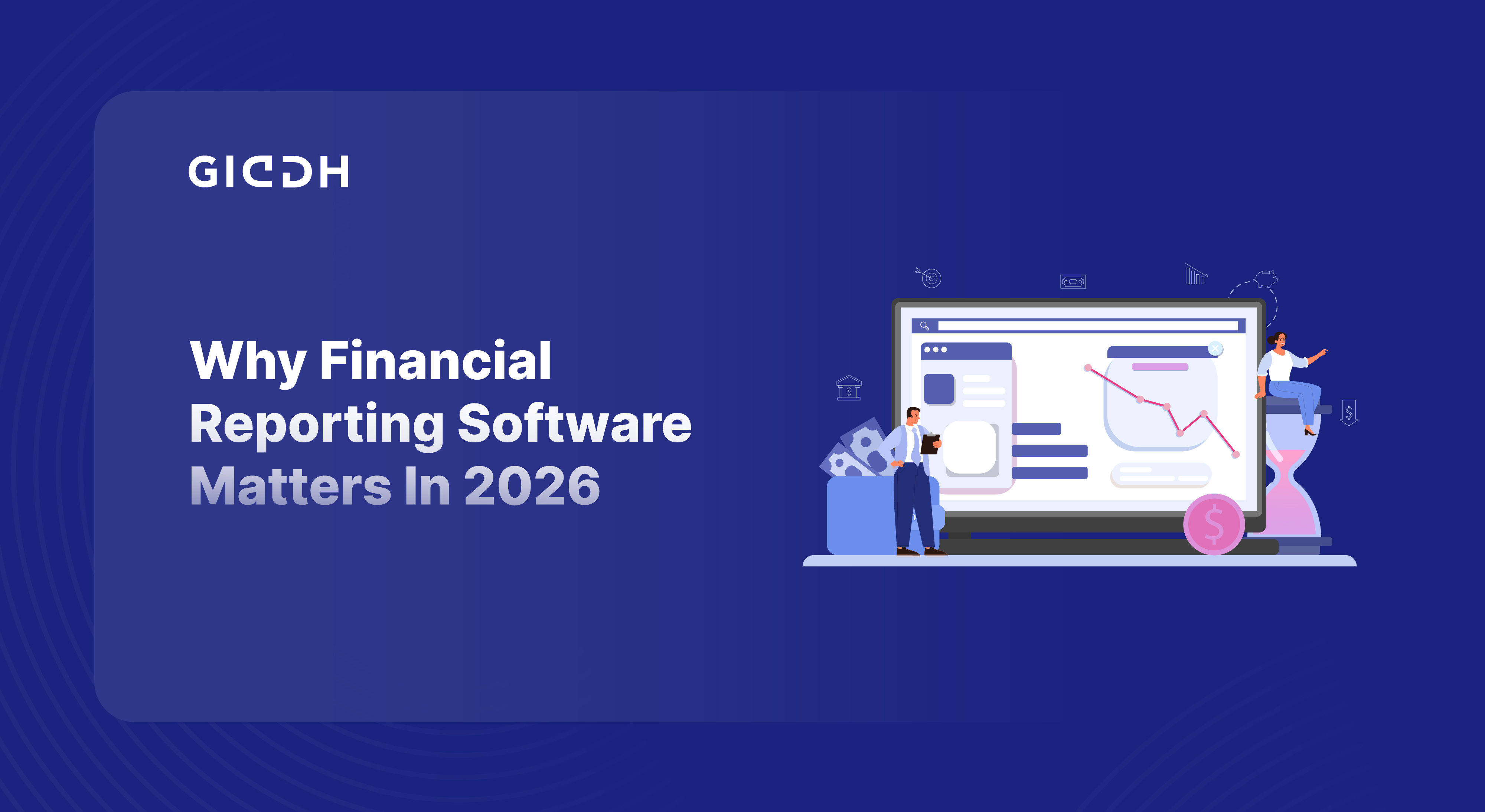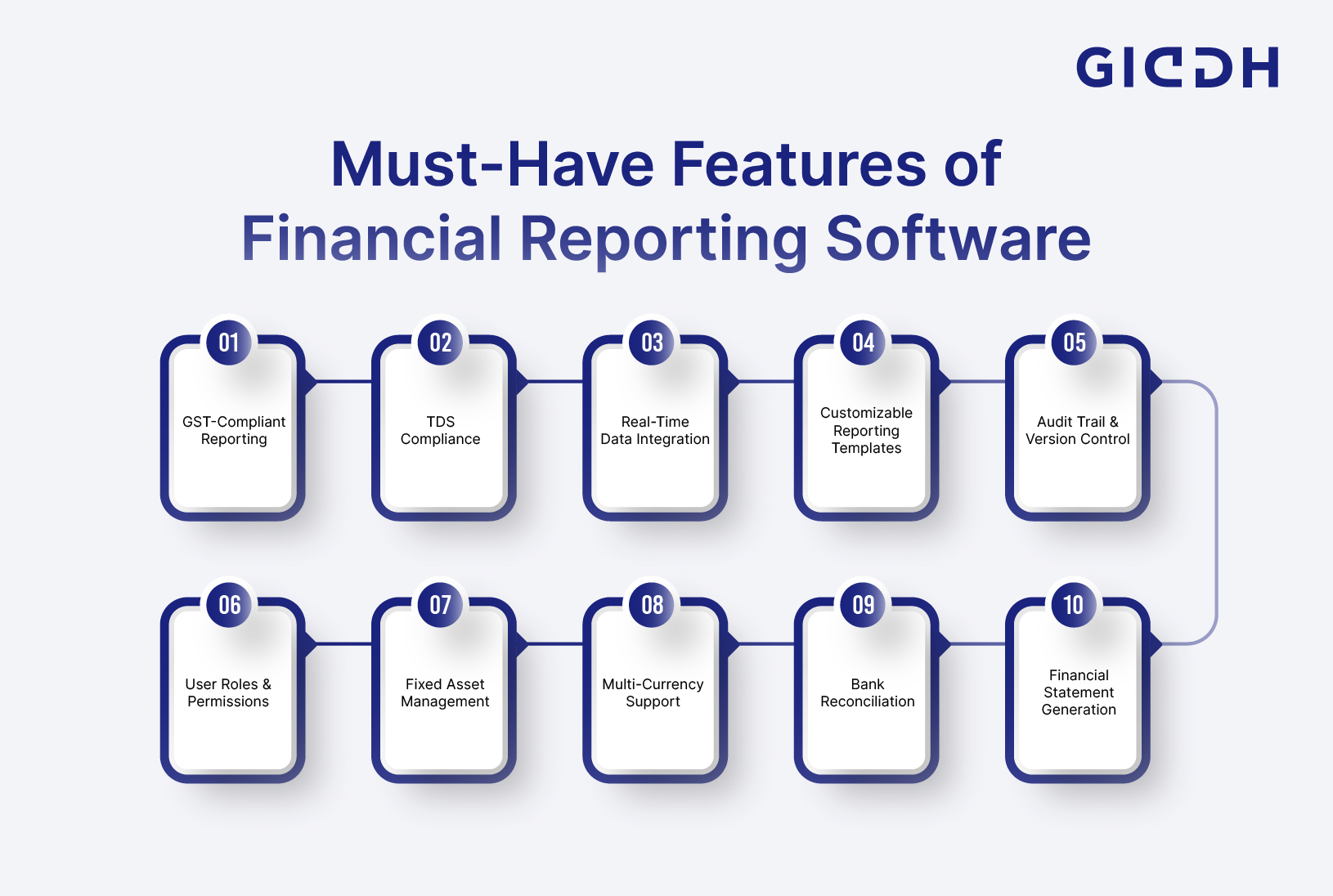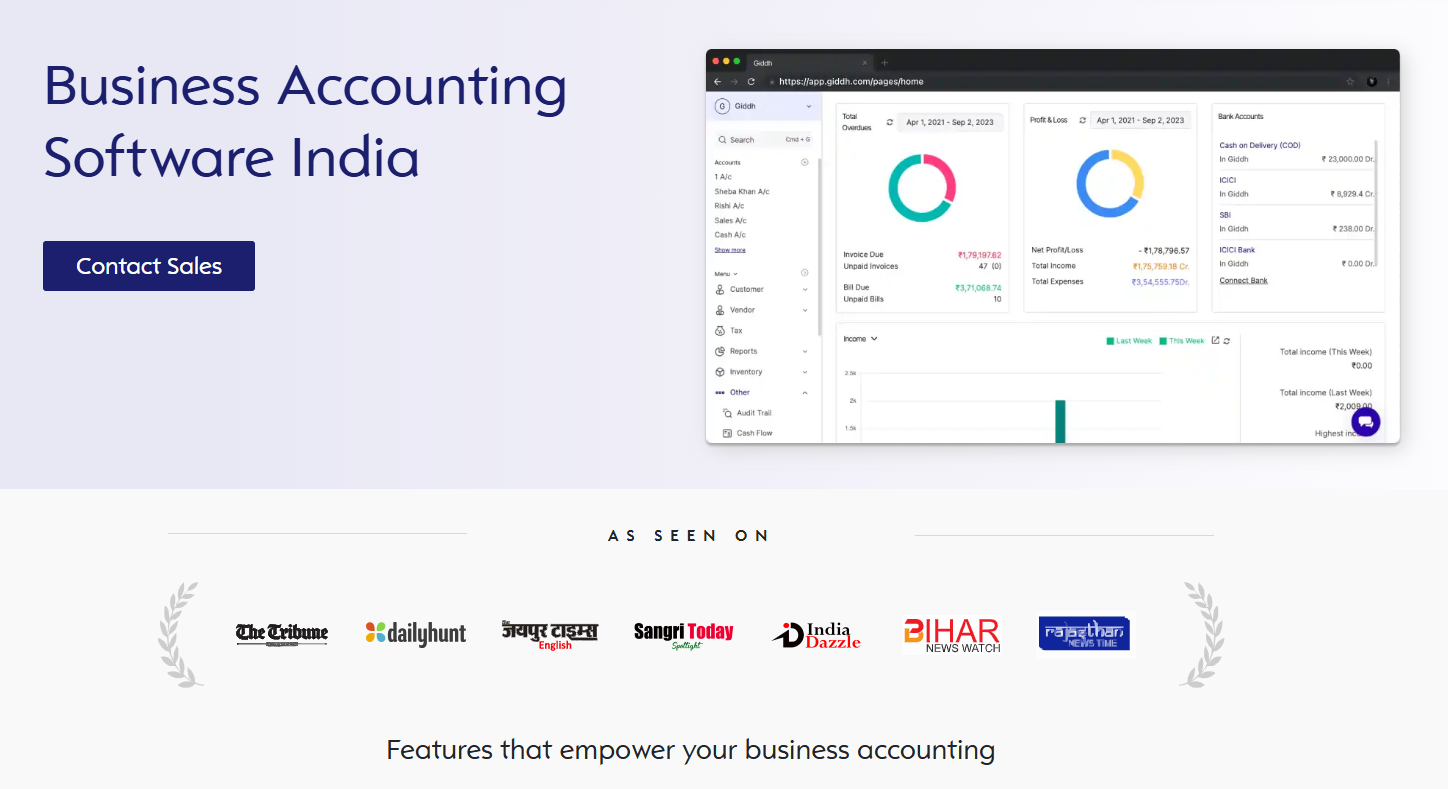Why Financial Reporting Software Matters for Compliance & Audit

Over 70% of small and mid-sized businesses (SMBs) struggle with manual financial reporting errors, which often lead to costly compliance mistakes, according to recent industry reports. This staggering statistic highlights the urgent need for automated financial reporting solutions, particularly in an increasingly complex regulatory environment.
Manual financial reporting can be a bottleneck, consuming valuable time and increasing the likelihood of errors and inconsistencies. These challenges not only impact operational efficiency but also threaten compliance and audit preparedness. In this blog, we’ll explore how adopting financial reporting software for businesses can help eliminate these risks, improve efficiency, and ensure your financial records are always audit-ready.
Whether you’re a CFO, finance director, or accountant in an SMB, this post will guide you through the importance of making the shift from outdated manual reporting to a more streamlined, automated solution that can transform your financial processes.
What Are the Main Challenges of Manual Financial Reporting?
Manual financial reporting methods—often relying on Excel sheets and paper-based systems—are not only time-consuming but also prone to errors. The process involves repeatedly inputting data into templates, cross-checking multiple sources, and spending hours to ensure that every number matches.
-
Slow and Labor-Intensive: Traditional methods require finance teams to allocate significant time just to generate basic reports.
-
Repetitive Tasks: Every month or quarter, the same manual processes need to be repeated for key financial reports such as balance sheets, profit & loss (P&L) statements, and GST filings.
For SMBs, this inefficiency can be a serious drain on resources, hindering the ability to focus on more strategic financial decisions.
Why Is Financial Reporting Software the Right Solution?
The main advantage of financial reporting software is its ability to automate compliance checks. With financial reporting tools for businesses, you can streamline tax calculations, regulatory filings, and other mandatory reporting tasks, ensuring that all data is accurate and up-to-date.
Financial software automates the generation of reports required for GST, TDS, and other Indian regulatory compliance needs, reducing the risk of errors.
-
Automated Tax Calculations: GST, TDS, and other taxes are calculated automatically, ensuring accurate filings.
-
Real-Time Updates: Financial software provides live updates, keeping your compliance reports current.
Does Financial Reporting Software Help Maintain Audit Readiness?
Financial reporting software ensures that your financial data is organized and always available for audit purposes. With built-in audit trails and version control, the software logs every change made to financial records, providing clear traceability and reducing the likelihood of audit issues.
-
Audit Trail and Transparency: Every transaction is logged, ensuring that audit records are accessible and accurate.
-
Preparedness for Audits: With automated tools, you can quickly generate and share reports needed for audits, significantly reducing preparation time.
| Feature | Benefit | Use Case / Example |
|---|---|---|
| GST-Compliant Reporting | Automates GST filing to ensure accuracy and compliance. | Automatically generates monthly GST reports, reducing the risk of filing errors. |
| TDS Calculation & Reporting | Simplifies TDS reporting and reduces the risk of penalties. | Calculates and generates accurate TDS reports based on payroll data for easy filing. |
| Real-Time Data Sync | Ensures up-to-date financial data for accurate reporting. | Syncs with accounting software to update ledgers in real-time, preventing discrepancies. |
| Audit Trail & Version Control | Provides a traceable record for easy audit preparation. | Keeps a log of every change made to financial data, making audits seamless. |
| Financial Statement Generation | Automates creation of P&L, balance sheets, and other financial reports. | Instantly generates balance sheets and P&L statements for quarterly review meetings. |
| Customizable Reporting Templates | Tailors reports to specific business needs, saving time. | Customizes reports for different departments, like tax filing and investor reports. |
| Multi-User Access | Allows team collaboration with secure role-based permissions. | Finance team members can access reports based on their permissions, ensuring security. |
| Regulatory Compliance Tracking | Ensures all reports meet current regulatory requirements. | Tracks GST, TDS, and other statutory compliance requirements, ensuring timely filings. |
| Cloud-Based Storage | Secure, accessible financial data from anywhere. | Access financial reports and data from any device, ensuring flexibility for remote teams. |
| Real-Time Insights | Provides actionable business insights for informed decision-making. | Displays real-time cash flow analysis, helping CFOs make quick decisions on expenditures. |
| Scalability | Grows with your business, supporting more users and features. | As the company grows, more users can be added to the system without disruption. |
Key Features To Look For In Financial Reporting Software

When selecting financial reporting software, it's crucial to ensure it meets your business's specific needs while streamlining your financial processes, improving compliance, and making audit preparation easier. Below are the key features that every effective financial reporting tool should include to help you stay compliant, accurate, and efficient.
GST-Compliant Reporting
The software must support GST compliance, especially for businesses in India. It should be able to automatically generate and file GST returns, reducing the risk of errors and penalties.
-
Automatic GST Calculation: Calculates GST based on the latest tax rates.
-
Filing Automation: Submits GST returns directly to the authorities.
TDS Compliance
With the increasing complexity of tax regulations in India, your financial software should ensure TDS compliance by accurately calculating and generating TDS reports.
-
Real-Time TDS Computation: Calculates TDS based on the latest tax rules.
-
Timely Filing: Automates TDS returns submission to tax authorities.
Real-Time Data Integration
Real-time data syncing between your accounting software and financial reporting tool is essential to ensure your reports reflect the latest updates.
-
Seamless Integration: Syncs with popular accounting tools like QuickBooks, Tally, etc.
-
Instant Updates: Eliminates discrepancies and ensures accuracy in financial reports.
Customizable Reporting Templates
The ability to create and modify customizable reports based on your business’s unique needs is essential for flexibility in reporting.
-
Tailored Templates: Customize reports for departments, stakeholders, or specific needs.
-
Regulatory Compliance: Ensure reports meet required formats for tax or investor needs.
Audit Trail & Version Control
An effective financial reporting tool should have a built-in audit trail to maintain a transparent record of all changes made to financial data, aiding in audit preparation.
-
Transaction Tracking: Every change in financial data is logged.
-
Complete Transparency: Provides a comprehensive audit history.
Financial Statement Generation
The software must automatically generate essential financial statements, such as profit and loss statements and Balance Sheets, with up-to-date data.
-
Automated Reports: Generates financial reports automatically based on real-time data.
-
Real-Time Data: Ensures accuracy in key documents for monthly, quarterly, and annual reporting.
Bank Reconciliation
The ability to automatically reconcile bank statements with financial records is a time-saver and ensures data accuracy.
-
Automatic Matching: Automatically matches bank transactions with your books.
-
Simplified Process: Reduces time spent manually matching entries and prevents errors.
Multi-Currency Support
For businesses that operate internationally, multi-currency support is crucial for managing financial transactions across various currencies.
-
Automatic Conversion: Automatically converts foreign transactions into your base currency.
-
Multi-Currency Reports: Generates reports in multiple currencies for accurate financial management.
Fixed Asset Management
Fixed asset management features help you track and manage your business assets, from acquisition to depreciation.
-
Asset Tracking: Keeps track of all your assets, including their status and value.
-
Depreciation Calculation: Automatically calculates depreciation based on the asset's lifecycle.
User Roles & Permissions
Security is paramount in financial reporting. Your software should allow for customizable user roles and permissions to ensure that only authorized personnel can access sensitive data.
-
Role-Based Access: Control who can view or modify specific data.
-
Audit Restrictions: Set user restrictions based on date range or account type to enhance security.
Giddh: The Best Solution for Compliance and Audit Readiness
Giddh is specifically designed to meet the financial reporting and compliance needs of Indian businesses. Offering a range of features that simplify compliance, automate reports, and provide audit-ready data, Giddh is the ideal solution for CFOs and finance teams.
Key Features of Giddh:
GST-Compliant Reports
Automatically generate and file your GST reports without errors.
- Ensures GST compliance with up-to-date tax rates and formats.
- Reduces manual entry errors and saves time on tax filings.
TDS Compliance
Ensure timely TDS filings with accurate calculations and documentation.
- Automatically computes TDS based on the latest tax slabs.
- Generates and submits TDS reports directly to the authorities.
Seamless Integration
Connects with popular accounting software for real-time updates.
- Syncs with accounting systems for smooth data transfer.
- Keeps financial records up to date without manual data entry.
Audit-Ready Data
Provides a clear audit trail, ensuring financial statements are prepared and ready for review at any time.
- Every transaction is tracked and easily accessible for auditors.
- Streamlines audit processes by offering instant access to required documentation.
User-Friendly Interface
Simple, intuitive design that requires minimal training.
- Reduces learning curves for finance teams, making adoption seamless.
- Allows users to navigate the platform efficiently without extensive training.
Audit Trail & Version Control
Tracks every change made to financial data, offering complete transparency.
- Keeps a complete history of modifications made to reports and transactions.
- Ensures compliance with auditing standards by providing traceable data.
Financial Statement Generation
Automatically generates key financial statements, including Profit & Loss, Balance Sheets, and more.
- Saves time in preparing quarterly and yearly financial reports.
- Automatically updates financial data to provide real-time reports.
Customizable Reporting Templates
Tailor reports to meet specific business or compliance requirements.
- Create custom report templates for different departments and stakeholders.
- Adjust formats to match regulatory needs or investor expectations.
Journal Entries
The Ledger-Based Journal Entry feature allows users to input entries directly into the company's ledger (accounts).
- Provides real-time updates on account balances without navigating separate pages.
- Eliminates errors in manually transferring data between systems.
Bank Reconciliation
Connect your bank account in Giddh, and with just one click, compare and match the transactions of your books with your bank account.
- Simplifies the reconciliation process and ensures accurate financial records.
- Saves time by automatically matching payments, receipts, and bank transactions.
Multiple Reports
Giddh offers various types of reports, such as Trial Balance, Profit & Loss, Balance Sheet, GST reports, Daybook, and Aging Report.
- Provides the flexibility to generate multiple reports from a single platform.
- Facilitates detailed analysis and reporting for better financial management.
Fixed Asset Management
Streamline the oversight and control of fixed assets with real-time reports on asset performance.
- Categorizes assets into Groups, Stock, and Variants for easy management.
- Helps track asset depreciation and monitor asset status over time.
Unlimited User Access
Grant unlimited user access with customizable roles for enhanced security.
- Set user restrictions based on Date Range, CIDR Ranges, and other criteria.
- Provides secure access for multiple team members while maintaining control over sensitive data.
Why Should You Invest in Financial Reporting Software Now?
India’s tax and reporting regulations are constantly evolving. With frequent updates to laws and compliance requirements, businesses require financial reporting software that can adapt to these changes.
-
Staying Updated: Financial reporting software ensures that your compliance systems are always aligned with the latest regulations.
-
Avoiding Penalties: By keeping up with tax law changes, your business can avoid costly fines and penalties.
Competitive Advantage of Financial Reporting Tool
Businesses that implement automated reporting and compliance tracking can not only save time but also gain a competitive edge. Automated systems are more reliable, faster, and cost-effective, allowing businesses to focus on growth rather than spending resources on manual data management.
-
Efficiency Leads to Growth: By automating compliance, businesses can reallocate resources to strategic planning and growth.
-
Trust with Stakeholders: Accurate and timely financial reports build trust with investors and other stakeholders.
Scale
As your business grows, so do its financial reporting needs. Financial reporting software is scalable, allowing your business to handle increased volume, more users, and more complex reporting requirements.
-
Scalability: The right software grows with your business, ensuring that your reporting system can handle increased complexity.
-
Future-Proofing: Invest in software that adapts to your evolving needs as your business expands.
Conclusion:
Manual financial reporting is inefficient, prone to errors, and increases the risk of compliance failures. Financial reporting software, especially tools like Giddh, eliminates these problems by automating key tasks, ensuring accuracy, and preparing businesses for audits with ease.
Ready to simplify your financial reporting? Try Giddh today, and take the first step toward efficient, compliant, and audit-ready financial operations.


